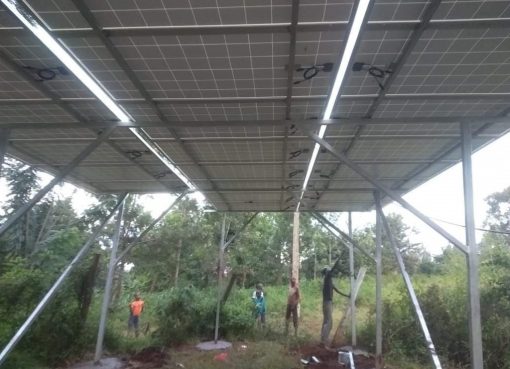Persistent drought has drastically reduced rice production in Kwale County, leaving desperate farmers lamenting over low incomes from the crop.
Rice fields in Mwangoi village, Lungalunga Sub-county, a leading rice growing area in the region, have dried up and locals are complaining of low yields compared to previous years.
The residents whose main economic activity is rice farming blamed climate change for the decline.
They said the future looks bleak as their only source of livelihood was at stake and called for urgent interventions to stem further weather deterioration, which they attributed to uncontrolled environmental destruction.
They added that they could no longer grow the crop throughout the year due to lack of constant supply of water for irrigation.
Led by their Chairman Mbwana Hussein, the farmers and appealed for assistance in establishing rain water harvesting technologies in the area to sustain rice farming during dry spells.
They accused the Kenya Forest Service (KFS) of doing very little to stamp out rampant deforestation which is posing a huge threat to the environment.
They claimed illegal and indiscriminate felling of trees for timber and charcoal burning was still going on in the area, despite a government ban on logging.
“The illegal harvesting of trees is contributing immensely to the extreme weather changes which are impacting negatively on agricultural yields. Something needs to be done to stop this worrying trend,” said Hussein.
According to the villagers, their incomes have dwindled due to the diminishing rice sales because the crop has been hit hard by unfavourable weather conditions. “We cannot cater for our basic needs as returns keep dropping,” he added.
At the same time, the residents claimed flooding of the local market with rice imports from Tanzania was also denying them an opportunity to sell their produce.
An affected farmer Athanus Chabogo said the government should protect local farmers from unfair competition by ensuring their rice is sold out and only allow imports to fill any gaps in the commodity demand.
However, he conceded that consumers preferred the imported rice brands because they were of superior quality, owing to advanced rice processing technology compared to the local one.
“We also need better rice mills if we are to compete favourably with other players in the market,” said Chabogo.
Meanwhile, according to the International Rice Research Institute (IRRI), higher temperatures could decrease rice yields as they make the flowers sterile and unproductive.
By Constance Mwandembo and James Muchai



